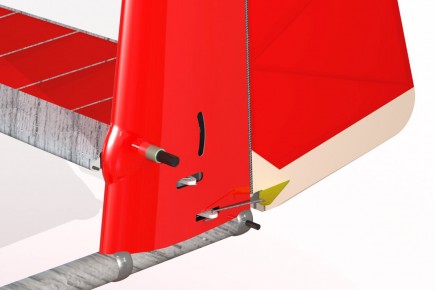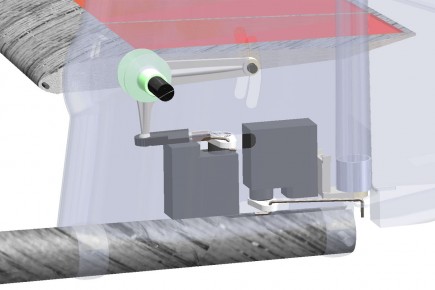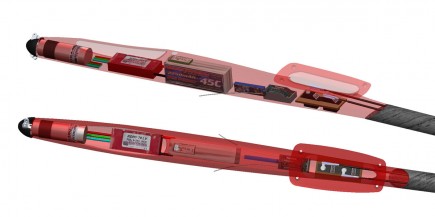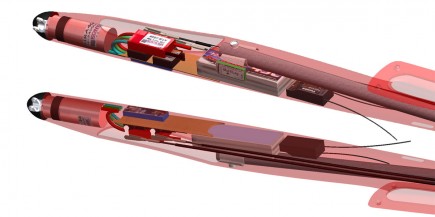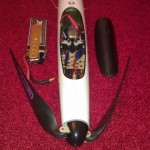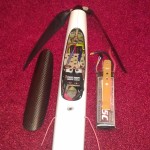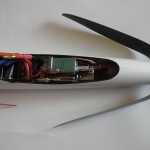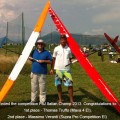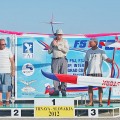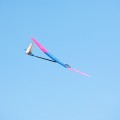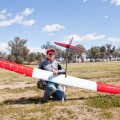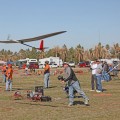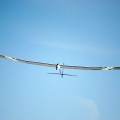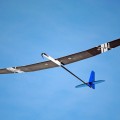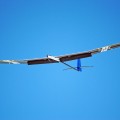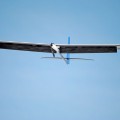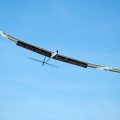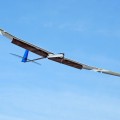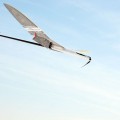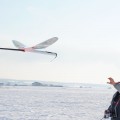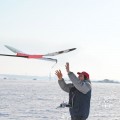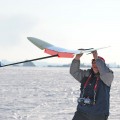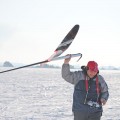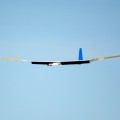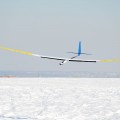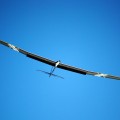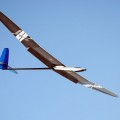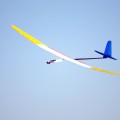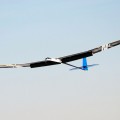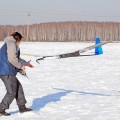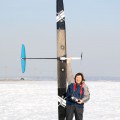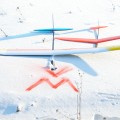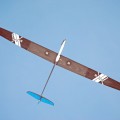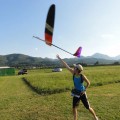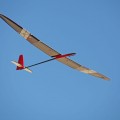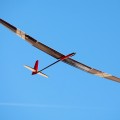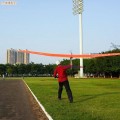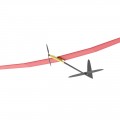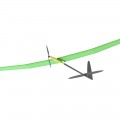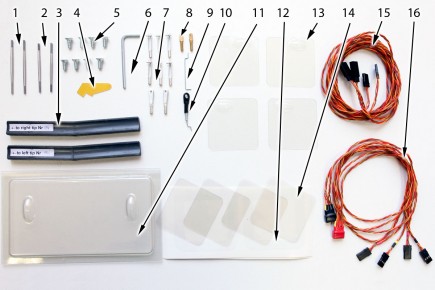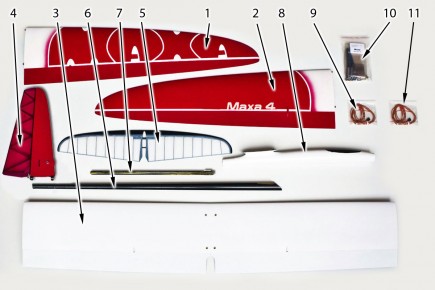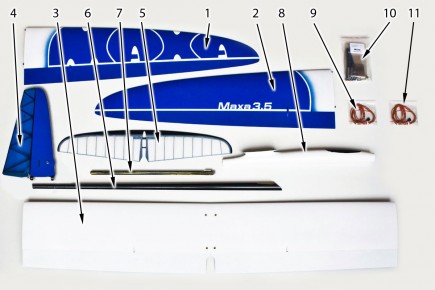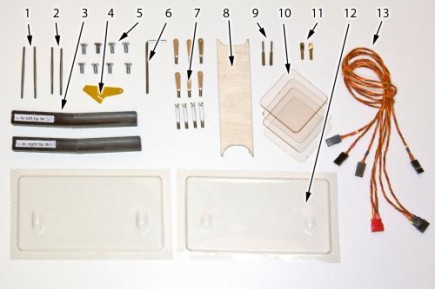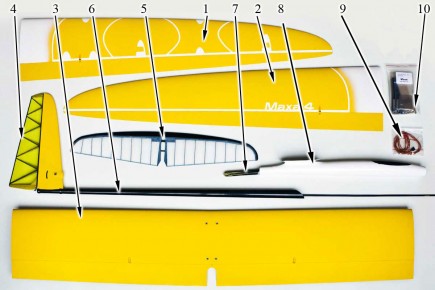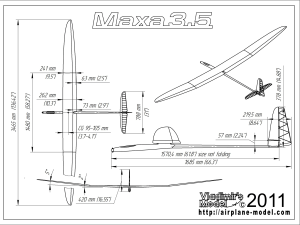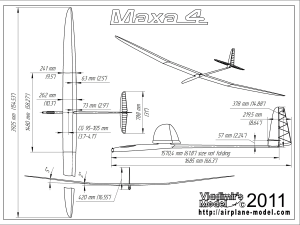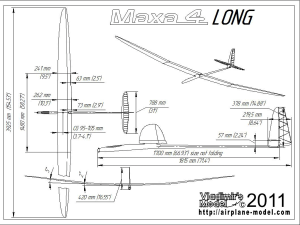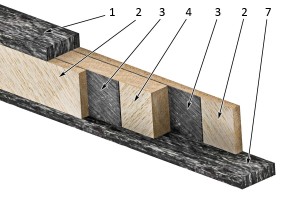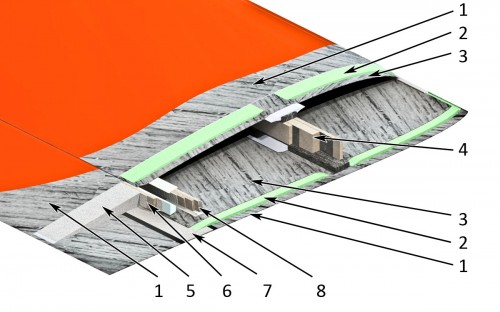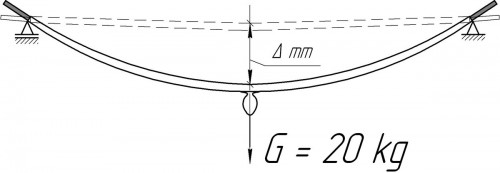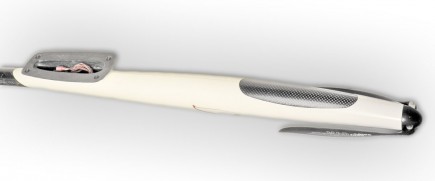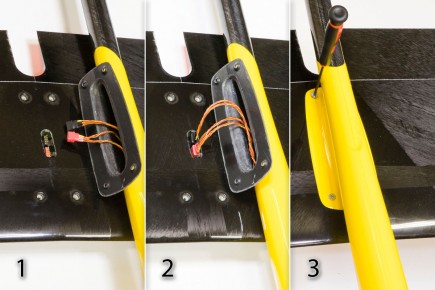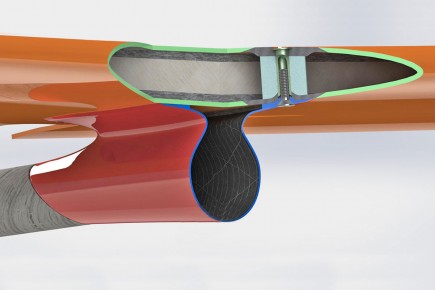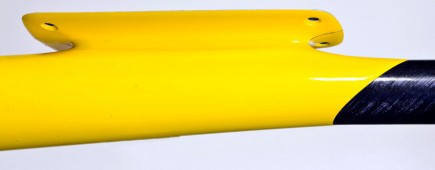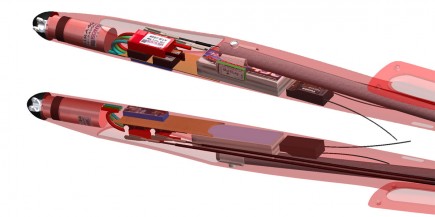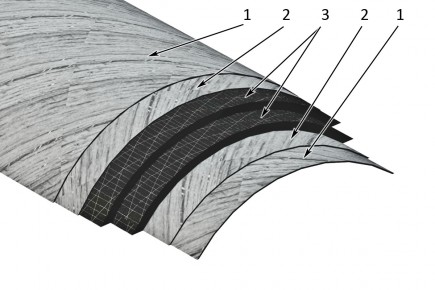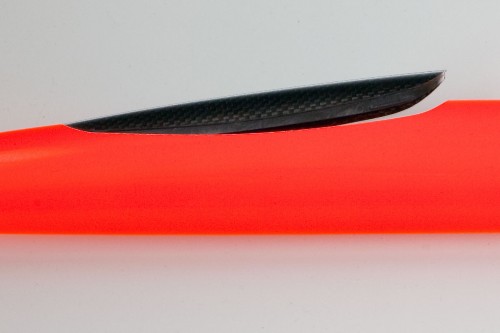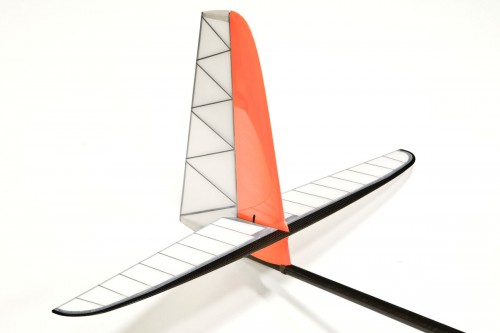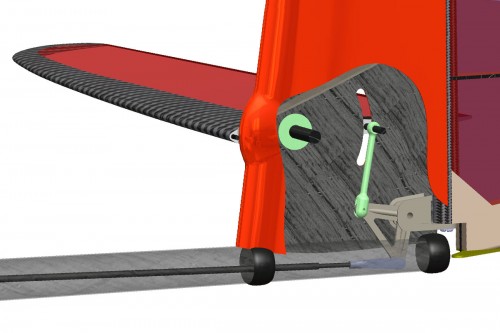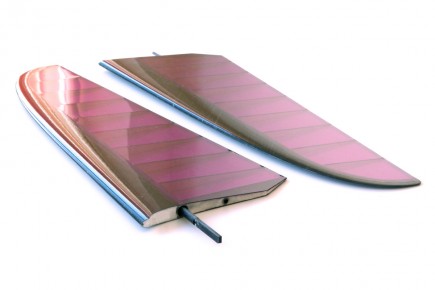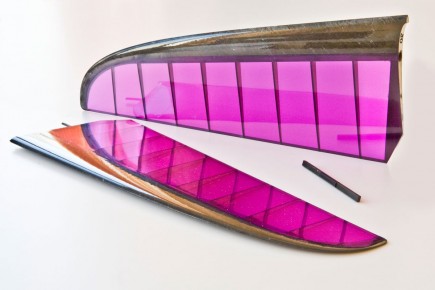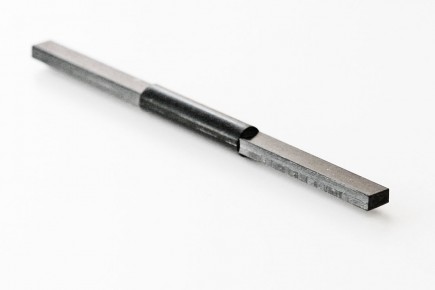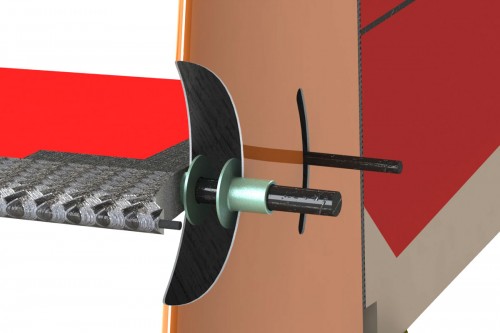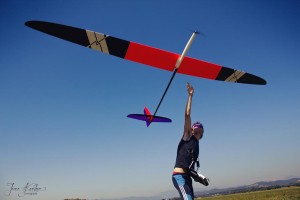Now you will be redirected to the Maxa family
You can download a PDF file with templates for setting different flight phases (modes).
![]() MAXA Wing template for flaps and ailerons settings
MAXA Wing template for flaps and ailerons settings
![]() Маха EL 3.5m and 4m fuselage assembly
Маха EL 3.5m and 4m fuselage assembly
You can also purchase set of two (1 и 2 ) ready-made templates out of fiberglass.(NOTE: to print the file in the correct scale, the scale settings for printing, select "None").
To correctly set up flap an aileron deflections in relation to the TX sticks movement, we recommend the following arrangement:
Variants of arrangement the equipment in the fuselage Maxa EL.
1) Option for the powerful motor, if there is no need to install ballast pipe. You can put a powerful battery. In this case, you must install the servos in the keel. This will set the big battery in the fuselage. This is the standard version. In this version, detachable stub for transportation and wiring.
During assembly offer to use the photo instructions, which kindly provided us with Alexander Boyko (e-mail: sasha@rcfm.org.ua).
We suggest You also use a build log, who kindly Rok Korber (Slovenia). We express our gratitude to him.
2) We recommend version Mach EL 4m F5j Long tail with ballast for the competition FAI F5J. You may use motor of up to 120g and lightweight battery 1200-1300mAH/45C.
Kiel of this updated version is not removable. You can remove only the rudder.
Contents of Maxa kit
Contents of accessories kit
1 - Flap pushrods (with M2 thread);
2 - Aileron pushrods (with M2 thread);
3 – Wing joiners;
4 – Rudder control horn;
5 – Wing and ballast mounting screws М4 (with three spare);
6 – Wrench for screws;
7 – Aileron, flap and tail clevises (with M2 thread);
8 - Aileron control horns;
9 - Rudder pushrod;
10 - Stabilizer pushrod with adapter;
There are three kinds of servo:
11,13,14 - Flat servo haches;
12 - Servo hatch Fix;
15 - Wing servo hatches with fairings for bigger servo horns;
16 - Wing servo hatches with fairings for bigger to the tail servos.
Contents of part kit:
1 - Right wing tip;
2 - Left wing tip;
3 - Central panel;
4 - Vertical stabilizer;
5 - Stabilizer;
6 - Tail boom;
7 - Ballast pipe;
8 - Fuselage;
9 - Wing servo hatches with fairings for bigger servo horns;;
10 - Contents of Maxa kit;
11 - Wing servo hatches with fairings for bigger to the tail servos.
Contents of Maxa EL 4m F5j Long tail
Contents of accessories kit
1 – Flap pushrods (with M2 thread);
2 – Aileron pushrods (with M2 thread);
3 – Wing joiners;
4 – Rudder control horn;
5 – Wing and ballast mounting screws М4 (with three spare);
6 – Wrench for screws;
7 – Aileron, flap and tail clevises (with M2 thread);
8 – Fuselage servo tray;
9 – Couplers M2 for carbon rod;
10 – Flat wing servo hatches;
11 – Aileron control horns;
12 – Wing servo hatches with fairings for bigger servo horns;
13 – Wires for connect the receiver to the wing connectors.
Contents of part kit:
1 - Right wing tip;
2 - Left wing tip;
3 - Central panel;
4 - Vertical stabilizer;
5 - Stabilizer;
6 - Tail boom;
7 - Ballast pipe;
8 - Fuselage;
9 - Wing servo hatches with fairings for bigger servo horns;
10 - Contents of Maxa kit;
Recommended equipment not included to the kit
1) Ballast Maxa;
3) Servos:
MKS DS6125; JR DS378; AIRTRONICS 94761Z, Hyperion 095FMD – for flaps;
JR 285MG; MKS DS6125; Hyperion 09AMD; JR DS378 – for ailerons;
MKS DS6100; MKS DS6500 - vertical and horizontal stabilizer;
4) Recivers:
Spectrum AR9000 (JR R921);
Futaba 6008HS, Futaba R617FS;
Weatronic Micro 8 Dual Receiver 2.4 Dual FHSS;
5) Hyper Spinner Power 32/Х/0, where Х - shaft diameter of Your motor;
6) Electric components:
|
Маха El F5J Long tail assembly for f5j competition (with Ballast) |
|||||
|
Type |
Name |
Weight, gr |
|||
|
Motor |
Typhoon HET2W18 / Reisenauer Micro Edition 5:1 |
115 |
|||
|
Brushless controller |
Shock 40 SBEC |
30 |
|||
|
Battery |
ThunderPower 45C, 3S, 1300 mAh |
114 |
|||
|
BEC |
UBEC 5A |
16 |
|||
|
Reciver |
Futaba R617FS |
10 |
|||
|
Servos |
Hyperion 09AMD |
9 gr x 4 pcs = 36 |
|||
|
|
Hyperion 095FMD |
19 gr х 2 pcs = 38 |
|||
|
Spinner |
Hyper Spinner Power 32/6/0 |
8 |
|||
|
Propeller |
Aero-Naut CamCarbon 15x8 |
21 |
|||
|
Additional components |
|
22 |
|||
|
The total weight of the power plant, gr |
410 |
||||
|
Model span – 4 meters, wing version - Light |
|||||
|
NT model weight |
Flight weight |
Propeller |
Speed of rize |
||
|
1500 gr |
1910 gr |
15х8 |
7 m/sec |
||
|
Model span – 3,5 meters, wing version - Light |
|||||
|
NT model weight |
Flight weight |
Propeller |
Speed of rize |
||
|
1410 gr |
1820 gr |
15х8 |
9 m/sec |
||
|
Маха assembly for f5j competition (with Ballast) |
|||||
|
Type |
Name |
Weight, gr |
|||
|
Motor |
NeuMotor 1105/2.5Y / Reisenauer Micro Edition 5:1 |
96 |
|||
|
Brushless controller |
CastleCreation 45A |
30 |
|||
|
Battery |
ThunderPower 45C, 3S, 1300 mAh |
114 |
|||
|
BEC |
UBEC 5A |
16 |
|||
|
Reciver |
Futaba R617FS |
10 |
|||
|
Servos |
Элероны: JR DS289MG |
12 x 2 pcs = 24 |
|||
|
Закрылки: JR DS388MG |
20 х 2 pcs = 40 |
||||
|
Руль высоты, Руль направления: MKS DS65K |
12 x 2 pcs = 13 |
||||
|
Spinner |
Hyper Spinner Power 32/6/0 |
8 |
|||
|
Propeller |
Aero-Naut CamCarbon 14x8 |
21 |
|||
|
Additional components |
|
22 |
|||
|
The total weight of the power plant, gr |
394 |
||||
|
Model span – 4 meters, wing version - Light |
|||||
|
NT model weight |
Flight weight |
Propeller |
Speed of rize |
||
|
1500 gr |
1894 gr |
14х8 |
5 m/sec |
||
|
Model span – 3,5 meters, wing version - Light |
|||||
|
NT model weight |
Flight weight |
Propeller |
Speed of rize |
||
|
1410 gr |
1804 гgr |
14х8 |
7 m/sec |
||
|
Assembly model with a powerful motor and larger battery (without Ballast) |
|||||
|
Type |
Name |
Weight, gr |
|||
|
Motor |
Kontronik Kira 480-50/5.2:1 |
200 |
|||
|
Brushless controller |
Kontronik KOBY 70LV |
62 |
|||
|
Battery |
ThunderPower 45C, 3S, 2250-2700mAh |
183 |
|||
|
BEC |
UBEC 5A |
16 |
|||
|
Reciver |
Futaba 6008HS |
14 |
|||
|
Servos |
Элероны: JR DS378 |
20 x 2 ps= 40 |
|||
|
Закрылки: MKS DS6125 |
26 х 2 pcs= 52 |
||||
|
Руль высоты, Руль направления: JR DS289MG |
12 x 2 pcs= 24 |
||||
|
Spinner |
Hyper Spinner Power 32/5/0 |
8 |
|||
|
Propeller |
Aero-Naut CamCarbon 14x9 |
21 |
|||
|
Additional components |
|
22 |
|||
|
The total weight of the power plant, gr |
642 |
||||
|
Model span – 4 meters, wing version - Light |
|||||
|
NT model weight |
Flight weight |
Propeller |
Speed of rize |
||
|
1500 gr |
2142 gr |
14х9 |
9 m/sec |
||
|
Model span – 3,5 meters, wing version - Light |
|||||
|
NT model weight |
Flight weight |
Propeller |
Speed of rize |
||
|
1410 gr |
2052 gr |
14х9 |
11 m/sec |
||
|
Assembly model with a powerful motor and larger battery (without Ballast) |
|||||
|
Type |
Name |
Weight, gr |
|||
|
Motor |
Kontronik Kira 400-39/5.2:1 |
160 |
|||
|
Brushless controller |
Kontronik KOBY 70LV |
62 |
|||
|
Battery |
ThunderPower 45C, 3S, 2250-2700mAh |
183 |
|||
|
BEC |
UBEC 5A |
16 |
|||
|
Reciver |
Futaba 6008HS |
14 |
|||
|
Servos |
Элероны: JR DS388 |
20 x 2 pcs= 40 |
|||
|
|
Закрылки: JR DS388 |
20 х 2 pcs= 40 |
|||
|
Руль высоты, Руль направления: JR DS289MC |
12 x 2 pcs= 24 |
||||
|
Spinner |
Hyper Spinner Power 32/5/0 |
8 |
|||
|
Propeller |
Aero-Naut CamCarbon 14x8 |
21 |
|||
|
Additional components |
|
22 |
|||
|
The total weight of the power plant, gr |
590 |
||||
|
Model span – 4 meters, wing version - Light |
|||||
|
NT model weight |
Flight weight |
Propeller |
Speed of rize |
||
|
1500 gr |
2090 gr |
14х8 |
6 m/sec |
||
|
Model span – 3,5 meters, wing version - Light |
|||||
|
NT model weight |
Flight weight |
Propeller |
Speed of rize |
||
|
1410 gr |
2000 gr |
14х8 |
8 m/sec |
||
|
Assembly model with a powerful motor and larger battery (without Ballast) |
|||||
|
Type |
Name |
Weight, gr |
|||
|
Motor |
NeuMotor 1107/2.5D / 5.3:1 |
165 гр |
|||
|
Brushless controller |
CastleCreation 60A |
58 гр |
|||
|
Battery |
ThunderPower 45C, 3S, 2250-2700mAh |
183 гр |
|||
|
BEC |
UBEC 5A |
16 |
|||
|
Reciver |
Futaba 6008HS |
14 |
|||
|
Servos |
Ailerons: JR DS388 |
20 x 2 pcs = 40 |
|||
|
|
Flaps: JR DS388 |
20 х 2 pcs = 40 |
|||
|
Elevator, Rudder: JR DS289MC |
12 x 2 pcs = 24 |
||||
|
Spinner |
Hyper Spinner Power 32/6/0 |
8 |
|||
|
Propeller |
Aero-Naut CamCarbon 14x9 |
21 |
|||
|
Additional components |
|
22 |
|||
|
The total weight of the power plant |
591 |
||||
|
Model span – 4 meters, wing version - Light |
|||||
|
NT model weight |
Flight weight |
Propeller |
Speed of rize |
||
|
1500 gr |
2091 gr |
14х9 |
7 m/sec |
||
|
Model span – 3,5 meters, wing version - Light |
|||||
|
NT model weight |
Flight weight |
Propeller |
Speed of rize |
||
|
1410 gr |
2001 gr |
14х9 |
9 m/sec |
||
|
Technical data of Maxa EL family |
||||||
|
Click on the model name to paint it |
||||||
|
Modification of the model |
Ultra Light |
Light |
Windy |
Ultra Light |
Light |
Windy |
|
The recommended speed limit for the use of wind |
≤6 |
≤9 |
≤12 |
≤4 |
≤8 |
≤10 |
|
Aerodynamic characteristics |
||||||
|
Length |
1730mm (68.1") |
1860 mm (73.2 ") |
||||
|
Wing span |
3465mm (136.4") |
3925mm (154.53") |
||||
|
Wing area |
73.84 sq dm (1144.47 sq in) |
82.16 sq dm (1273.45 sq in) |
||||
|
Wing air foils |
rt01/td19sag/j00/j01/j02/j03 |
|||||
|
Wing aspect ratio |
16.25% |
18.75% |
||||
|
Stabilizer area |
7.8 sq dm (120.9 sq in) |
|||||
|
Stabilizer aspect ratio |
7.96% |
|||||
|
Stabilizer airfoils |
HT14/HT15 |
|||||
|
Vertical Stabilizer area |
5.78 sq dm (89.62 sq in) |
|||||
|
Vertical Stabilizer aspect ratio |
2.47% |
|||||
|
Control surfaces |
ailerons, flaps, rudder, elevator |
|||||
|
Weight characteristics ** |
||||||
|
Pod |
125 |
|||||
|
Tail boom with fin and rods |
110 |
106 |
105 |
|||
|
Central panel |
490 |
617 |
720 |
490 |
617 |
720 |
|
Wing Tips ( both) |
330 |
380 |
415 |
370 |
470 |
500 |
|
Stabilizer |
38 |
|||||
|
Details like hatches, rods, screws, crevices. |
66 |
|||||
|
Wing joiners ( both) |
35 |
|||||
|
NT model weight |
1192 |
1365 |
1413 |
1227 |
1404 |
1587 |
|
Weight of electric components, gr |
327*** |
394 *** |
394 *** |
327*** |
394 *** |
394 *** |
|
AUW (All up weight) * |
1519 |
1759 |
1807 |
1554 |
1798 |
1981 |
|
Wing loading ( g/dm²) * |
20.6 |
23.8 |
24.5 |
21.04 |
24.3 |
26.85 |
|
Price |
||||||
|
Add to the Shopping Cart |
||||||
* - typical value shown; the actual values depend on the radio gear used;
** - weight of the components depends on the color and the presence of stripes. Dark colors lighter, yellow is the heaviest;
*** - weight of lightest professional combination with ballast pipe (see kit tab).
Maxa wing spar
1 – flanges hot cured from carbon pre-preg in an autoclave;
2 – outer balsa webbing at 45 degree bias;
3 – Spread Tow carbon of ±45 degree layup totaling 0,04 mm in thickness;
4 – inner balsa webbing at 45 degree bias.
Maxa’s wing spar is cured at high temperature under vacuum. The spar flanges made in an autoclave from high strength carbon pre-preg are securely glued to the multi-layer web. We use high strength carbon fiber IMS 65 for the flanges.
The spar durability is improved by the use of balsa shear web. Balsa is more durable than any other material in this role. Placing balsa at ±45 degree bias not only improves it ability to carry shear load, but also improves the strength of the glue joint between the web and the flanges.
Additional layers of Spread Tow carbon improve the stiffness of the wing spar.
We build spars with two flange sizes:
- 11,5 mm wide - lighter spar for Light versions;
- 15 mm wide - haviest spar for Windy versions.
The XXI century design from Vladimir’s Model employs Rohacell for flap core, which results in amazingly lightweight thin wings of surprisingly high strength. Combination of high aileron stiffness and low weight eliminates flatter even at the highest flight speeds.
To build wing for Maxa, we use bi-axial carbon Spread Tow fabric of our own proprietary design and production, made of high strength IMS65 carbon fibers. The weight of this fabric is 38…40 gram/m², which leads to lighter and stronger parts.
Maxa 3.5m and Maxa 4m Windy central wing section
1 – Outer layers of our carbon spread tow laid at -45°;+45°;0° degree bias. There are also additional lengthwise gain of Spread Tow Carbon (Carboline). There ara two layers of Carboline laid at -45°;+45° degree bias on the flaps;
2 – Herex core of the composite sandwich;
3 – Inner layers of our carbon spread tow laid at -45°;+45°;0° degree bias;
4 – Spar flanges from high strength IMS65 carbon fiber, 15 mm wide;
5 – Rohacell flap core;
6 – The front wall of the aileron is made of balsa plywood covered with glass fabric. This design reduces the weight of the control surface, while its height together with Spread Tow outer layers results in unsurpassed torsional stiffness;
7 – Strip of the hinge material;
8 – The rear wall of the wing from balsa plywood and fiberglass.
Maxa 3.5m and Maxa 4m Light central wing section
1 – Outer layers of our carbon spread tow laid at ±30 degree bias. Such layup results in high torsional stiffness and, at the same time, works in bending together with the spar. Outer Spread Tow layers improve the wing durability;
2 – Herex core of the composite sandwich;
3 – Inner layers of our carbon spread tow laid at ±30 degree bias;
4 – Spar flanges from high strength IMS65 carbon fiber, 11.5 mm wide;
5 – Rohacell flap core;
6 – The front wall of the aileron is made of balsa plywood covered with glass fabric. This design reduces the weight of the control surface, while its height together with Spread Tow outer layers results in unsurpassed torsional stiffness;
7 – Strip of the hinge material;
8 – The rear wall of the wing from balsa plywood and fiberglass.
Comparison of MAXA EL family wings(average weight; the actual weight depends on the color and presence of strips) |
||||
|
|
MAXA 3.5m EL |
MAXA 4m EL |
||
|
Model version |
Light |
Windy |
Light |
Windy |
|
The recommended speed limit for the use of wind m/sec |
≤9 | ≤12 | ≤5 | ≤10 |
|
Spar width, mm |
11.5 | 15 | 11.5 | 15 |
|
Composite sandwich of central panel outer/inner |
Carboline [±30°] / [ ±30°] | Carboline[0°;±45°] / [ ±45°] + additional lengthwise gain of Carboline | Carboline [±30°] / [ ±30°] | Carboline[0°;±45°] / [ ±45°] + additional lengthwise gain of Carboline |
|
Central wing section weight**, gr |
615-620 | 720 | 615-620 | 720 |
|
Central panel bending *Δ, mm |
16 | 11 | 16 | 11 |
|
Composite sandwich of wing tip outer/inner |
Carboline [±30°] / Glass [ ±45°] | Spread Tow Carbon [±45°] / [ ±30°] | ||
|
Wing tip weight **, gr |
190 | 235 | 250 | |
|
Wing joiner weight, gr |
18 |
|||
Advantages of the ultra-stiff Maxa fuselage:
- The fuselage is attached to the bottom of the wing with 4 screws to facilitate the assembly—you don’t need to turn the plane over, after you plug the wing servo connectors.
- The wing structure is tied together with special shape nut, which is glued through the whole thickness of the wing. Such design better spreads shock loads of hard landings.
- The tilt junction the tail boom with nose, in addition to the elegant appearance, greatly reduces the stress concentration at this location;
- Maxa is supplied with pre-assembled fuselage of two parts. Маха EL 4m F5j Long tail has glued Kiel and installed Push rods. Maxa EL 4 m and Maxa EL 3.5 m have removable Keels (this is an advantage in transportation).But Keels are already fitted to the boom and you just need to paste the boom by epoxy resin.
Servos in the fuselage Maxa EL 4m F5j Long tail mounted in a horizontal position. This opens the exclusive access to the battery, motor and receiver (See instructions on the tab “manual”). Ballast tube isn't glued, but is included.
Tail boom
The Tail Boom is made from thin carbon Spread Tow laid at +45 degree (1) and -45 degree (2) bias. Between the Spread Tow layers, there are 2 layers of unidirectional high strength carbon fiber (3). This design yields stronger, stiffer, and more thermal stable tail boom, which weighs only 41 gram without pushrods.
Canopy
Canopy is made of carbon composite. . It uses reliable mounting latch design proven in many Vladimir’s Model planes: Supra PRO, Supra Electric, Blaster 2 Electric, Sprite, Graphite 2 Electric.
By numerous requests, we made Maxa’s tail of classical X-shape design.
We managed to overcome inherent drawbacks of this design and the resulting aerodynamic gains became apparent.
The horizontal stabilizer is now located higher up, which increases the launch safety.
The new design together with Vladimir’s Model trademark D-box built-up tail structure reduce the weight and increased the stiffness of the whole control system.
Vertical stabilizer
The tall and stiff vertical stabilizer gives Maxa good yaw stability and control even at low flight speeds. The horizontal stabilizer doesn’t shadow the rudder, which improves its efficiency.
The light built-up rudder can be taken off to reduce the fuselage length for ease of transport, this requires removing only special rear pin. The screw with precisely ground stem slides into the bearing, which contributes to the accuracy and the stiffness of the yaw control, which is crucial for high energy launches. The composite tube serves as the rudder spar, which results in its extremely high torsional stiffness.
Horizontal stabilizer
Stabilizer Maxa - is an embodiment of the latest model aircraft technology. It was first applied technology Rohacell postforming. Because of this we were able to achieve incredible detail inlaid geometric accuracy of the airfoile. The use of whole-core enabled us based on D-box construction using ultra-thin lining of Spread Tow Carbon (Carboline).
The result is well balanced and light rotating horizontal stabilizer provides the required pitch stability. Its weight together with the joiner is 36 gram.
We have beefed up the horizontal stabilizer’s pivot, which resulted in substantial stiffness increase of the whole control system. The elevator pushrod is under tension, then you push the elevator up, which results in more precise elevator control.
Excellent control at low speed is achieved with the help of larger horizontal stabilizer area, which results in more accurate landings.
Our advanced CAD/CAM design and manufacturing yield unmatched accuracy of all the parts.
Maxa EL first glider designed by the concept of the new rules in 2011 FAI F5J.
The main feature of such rules is the need to find thermals at low altitude and fly all 15 minutes in the final. Eliminated the need for high-power heavy motors. Therefore, the design we did not expect a quick empyrean rise, and rely on the performance characteristics of a glider:
- Aerodynamic quality glider enhanced by a comprehensive elaboration of the model parameters Joe Wurts. Therefore, the Maxa give odds in the absence of thermals in the morning or evening;
- Maxa is very sensitive to even small bubbles due to very low mass and low inertia especially consoles and fuselage;
Despite the large-scale Maxa has very little wind resistance and is very lightweight, so easy enough for the power plant is almost vertical take-off;
- Penetration, the ability of the glider to return from distant thermals without loosing much altitude, is improved by the exceptional aerodynamic properties of the new model;
- Ability to position ballast in the nose make it very easy to Maxa able to win in the strongest wind.
In the equipment, note the weight of the model and its rate of climb. This will allow you to choose the appropriate model of the tasks that you want to perform.
Choosing a model for a quiet and slightly thermal weather stop at Maxa 4 EL. With gross weight 1800 grams, you will receive a unique glider with huge opportunities to win the competition at the highest level.
For complex wind weather stop your choice on Maxa 3.5 EL. Due to its high maneuverability and a smaller scale with a high speed take-off, you get a glider able to find the flow in bad weather conditions, fly it away in the wind and go back to the site. Not of such a model, you dream before! Now it has become possible Maxa.
Maxa EL 3.5m
Maxa 3.5 EL is the universal soaring leader for any weather.
This glider takes advantage of even the weakest morning thermals, thanks to its light weight. High structural stiffness and novel aerodynamics allow Маха 3.5 to easily climb and return from distant thermals even in the windy weather.
Efficient wing mechanization permits accurate control of the flight speed not only on landing, but also during the search for thermals.
Increased area of the light horizontal stabilizer improves the control and guarantees “bull eye” landings.
Maxa EL 4m
Maxa 4 EL – a version with the wing span increased to 3,925 meters.
Maximum wingspan (according to 2011 FAI F5J) gives significant advantage in reducing the load on the wing.
In the wind, you return very lightweight glider from far flow at low altitude, while competitors were left in the field. This is Маха EL 4m !
Increased wing span also makes it easier to see the plane from a distance.
MAXA Wing allows you to effectively control the speed on landing, as well as to reduce resistance at take-off and switching between flows.
In addition, the increase in the concavity of wing is extremely effectively for the treatment of weak thermals.
Location of servos in Kiel leaves more space in the fuselage for higher capacity batteries.
Maxa EL 4m F5j Long tail
Maxa EL 4m Long – the newest version with wingspan 3.925m.
Tail servos are installed in the nose of the model. This significantly reduces the inertia of the fuselage and positively affects the quality of the flight.
The main advantage of long booms is to improve longitudinal stability of the model.
Hypersensitivity to flows, improved handling model, especially on small landing speeds (this also make more accurate landing), will allow you to fully realize themselves, and enjoy the flight.
We recommend you to use HYPER SPINNER POWER 32 mm for all versions of Maxa EL.
You can select the version, which best fits your needs, using the following table.
|
Technical data of Maxa EL family |
||||||
|
Click on the model name to paint it |
||||||
|
Modification of the model |
Ultra Light |
Light |
Windy |
Ultra Light |
Light |
Windy |
|
The recommended speed limit for the use of wind |
≤6 |
≤9 |
≤12 |
≤4 |
≤8 |
≤10 |
|
Aerodynamic characteristics |
||||||
|
Length |
1730mm (68.1") |
1860 mm (73.2 ") |
||||
|
Wing span |
3465mm (136.4") |
3925mm (154.53") |
||||
|
Wing area |
73.84 sq dm (1144.47 sq in) |
82.16 sq dm (1273.45 sq in) |
||||
|
Wing air foils |
rt01/td19sag/j00/j01/j02/j03 |
|||||
|
Wing aspect ratio |
16.25% |
18.75% |
||||
|
Stabilizer area |
7.8 sq dm (120.9 sq in) |
|||||
|
Stabilizer aspect ratio |
7.96% |
|||||
|
Stabilizer airfoils |
HT14/HT15 |
|||||
|
Vertical Stabilizer area |
5.78 sq dm (89.62 sq in) |
|||||
|
Vertical Stabilizer aspect ratio |
2.47% |
|||||
|
Control surfaces |
ailerons, flaps, rudder, elevator |
|||||
|
Weight characteristics ** |
||||||
|
Pod |
125 |
|||||
|
Tail boom with fin and rods |
110 |
106 |
105 |
|||
|
Central panel |
490 |
617 |
720 |
490 |
617 |
720 |
|
Wing Tips ( both) |
330 |
380 |
415 |
370 |
470 |
500 |
|
Stabilizer |
38 |
|||||
|
Details like hatches, rods, screws, crevices. |
66 |
|||||
|
Wing joiners ( both) |
35 |
|||||
|
NT model weight |
1192 |
1365 |
1413 |
1227 |
1404 |
1587 |
|
Weight of electric components, gr |
327*** |
394 *** |
394 *** |
327*** |
394 *** |
394 *** |
|
AUW (All up weight) * |
1519 |
1759 |
1807 |
1554 |
1798 |
1981 |
|
Wing loading ( g/dm²) * |
20.6 |
23.8 |
24.5 |
21.04 |
24.3 |
26.85 |
|
Price |
||||||
|
Add to the Shopping Cart |
||||||
* - typical value shown; the actual values depend on the radio gear used;
** - weight of the components depends on the color and the presence of stripes. Dark colors lighter, yellow is the heaviest;
*** - weight of lightest professional combination with ballast pipe (see kit tab).

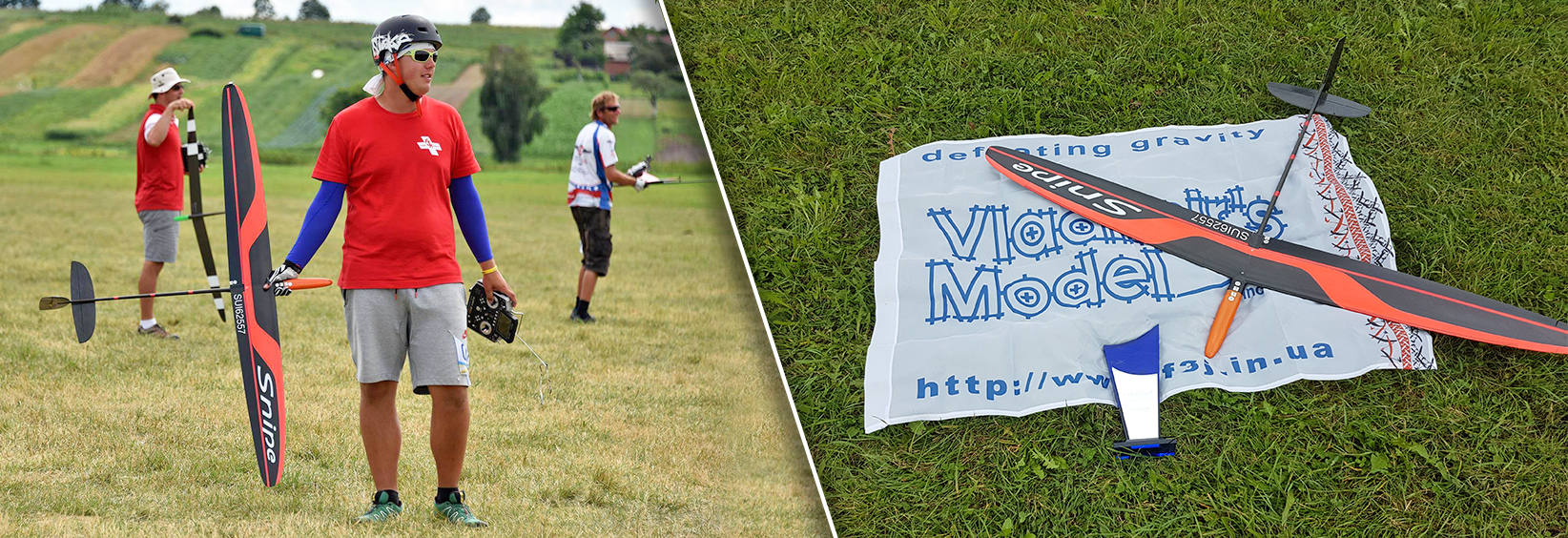
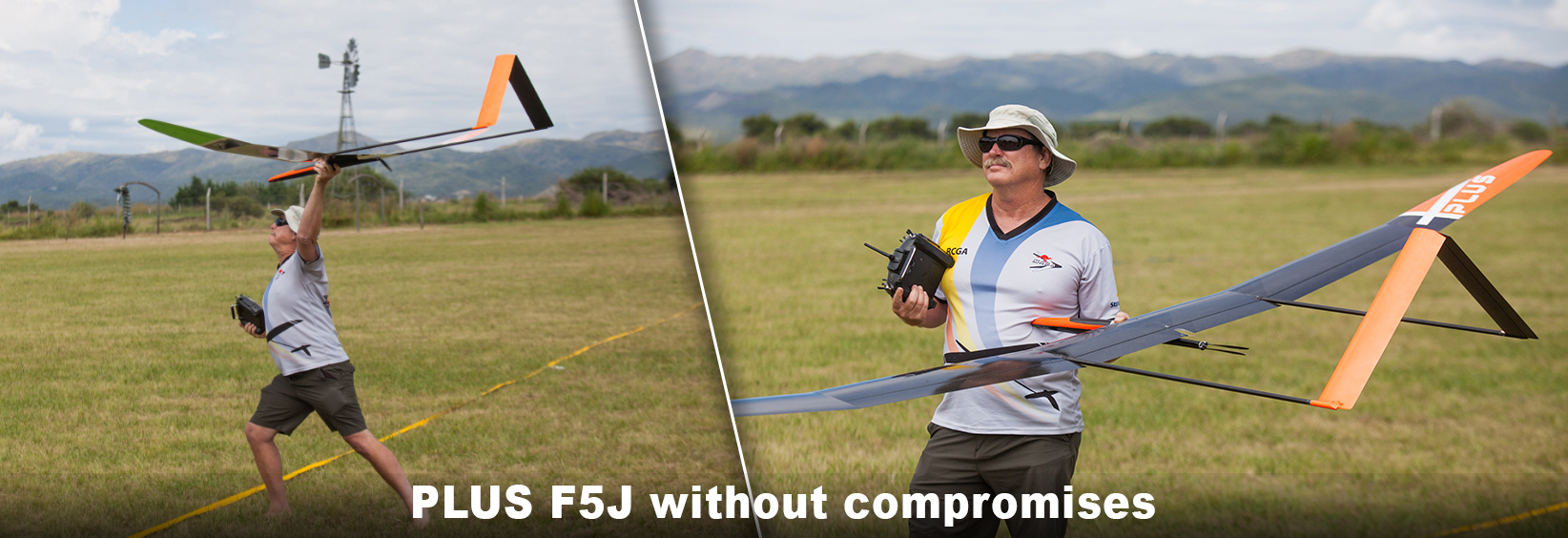
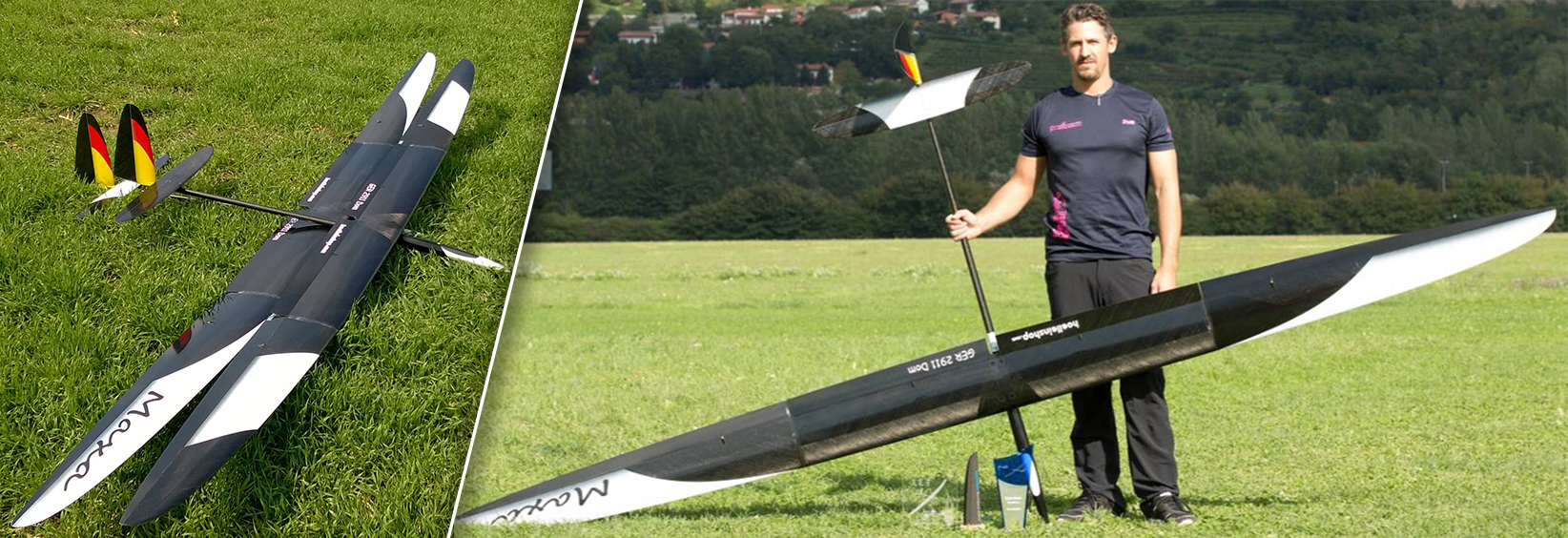
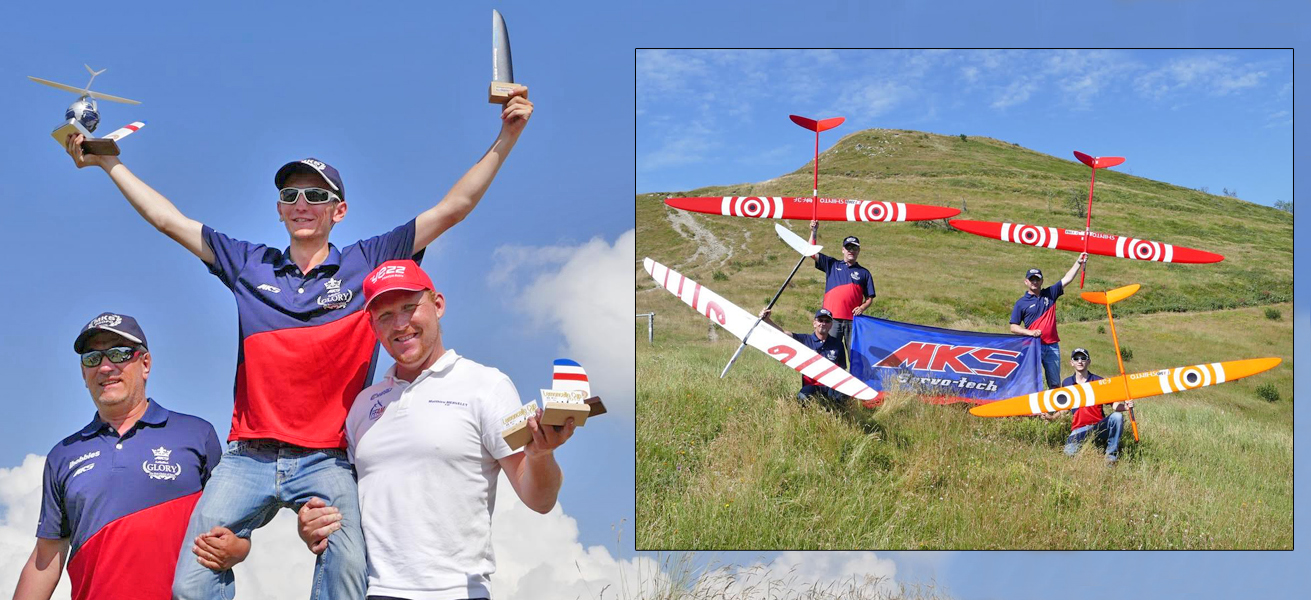
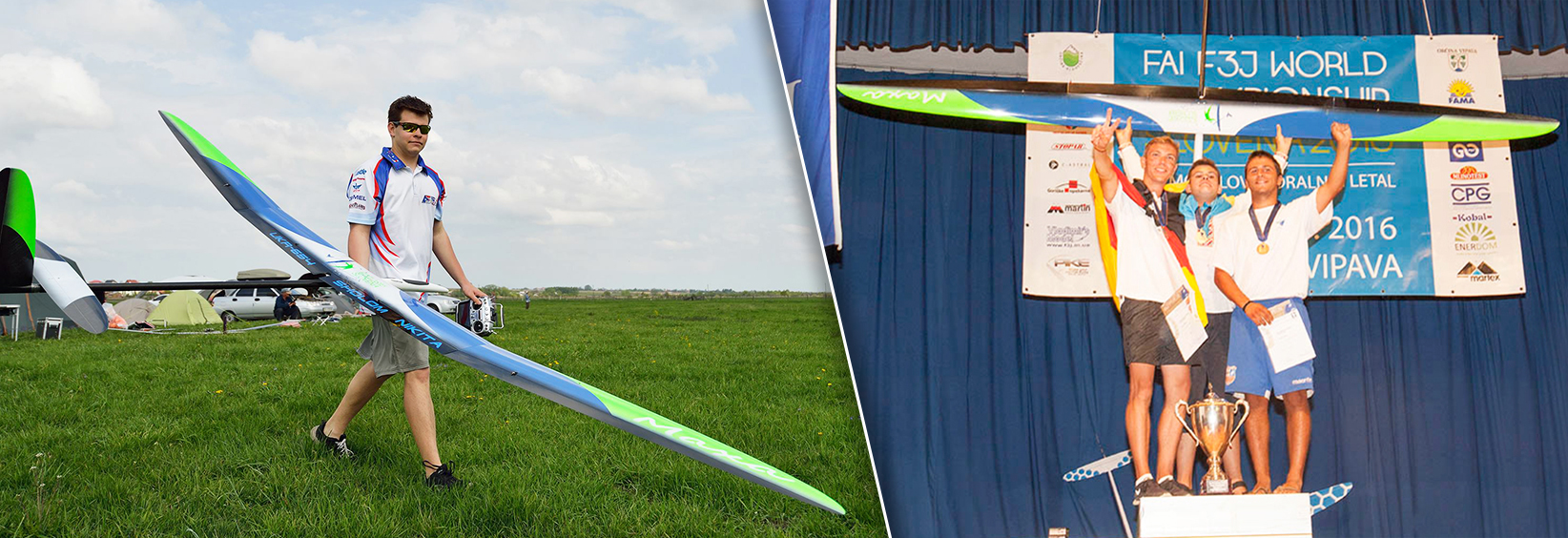

 Top
Top
3.jpg)
.jpg)
